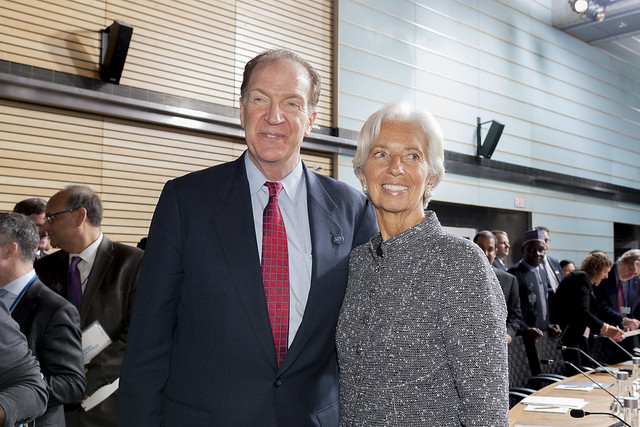Many have focused on how David Malpass will implement the directives coming out of the Trump administration in Washington. In particular that means viewing international affairs, including international economic affairs, as a zero-sum game. And the principle target of the Trump administration has been China.
But what will a Malpass presidency really mean for China after all? Much like the discussion of the trade war, when the US places indiscriminate tariffs on Chinese goods, while this may hurt Chinese exporters, the ones who really pay for the tariffs are American consumers. A Malpass-led World Bank attempted assault on China might end up hurting the US more than China. Let’s look at some of the most relevant areas:
Belt and Road Initiative (BRI) projects – the presumption is that a Malpass-led World Bank will steer clear of BRI projects, in line with Trump administration views that there should be less financial cooperation with China. But BRI projects are again not generally capital constrained. There are plenty of other lenders lined up to work in conjunction with BRI projects, particularly the Chinese policy banks – behemoths with much bigger balance sheets than the World Bank. There are also other development finance institutions and regional development banks ready to cooperate. In the end the World Bank will be side lined in many important infrastructure and economic development projects, reducing its scope for influence as countries increase their cooperation with, and possibly reliance on, other financial institutions. Malpass thus looks like a gift to the Asian Infrastructure Investment Bank, the BRICS New Development Bank (NDB) and the Chinese policy banks, who will all gain influence while the influence of the World Bank declines.
Energy sector – the denials of the Trump administration and their republican backers have zero impact on the reality of climate change. In the meantime there is a global race to develop leadership in low-carbon technologies and industries. A World Bank that eschews clean energy projects in favour of coal financing, oil exploration or other high carbon projects, will leave the way clear for others in this space. World Bank financed clean energy projects could certainly use Chinese technology, as the Bank-mandated procurement frameworks would have been fairly open, level playing fields. Non-World Bank projects, especially those financed under BRI (see above) are free to tie financing to certain procurement choices. This leaves Chinese wind turbine, hydropower and solar conglomerates well placed to use Chinese financial muscle to help them drive down the marginal cost of their offering with learning-by-doing approaches. A World Bank change of heart on clean energy is not likely to actually reduce the demand for these technologies, so the Chinese will be aiming to develop dominant market shares for their companies. That’s a win for Chinese industrial policy.
Continue reading →

